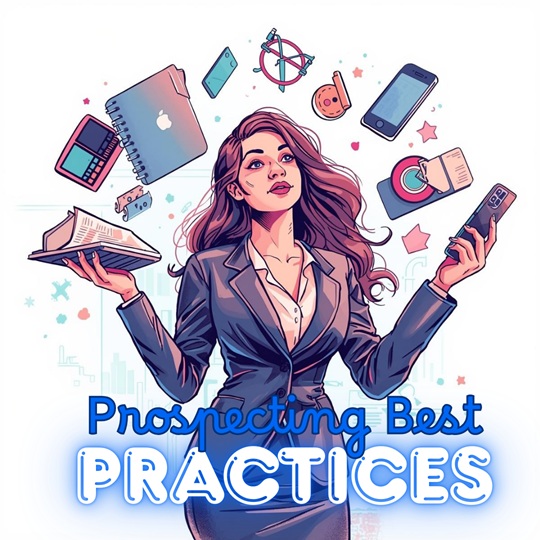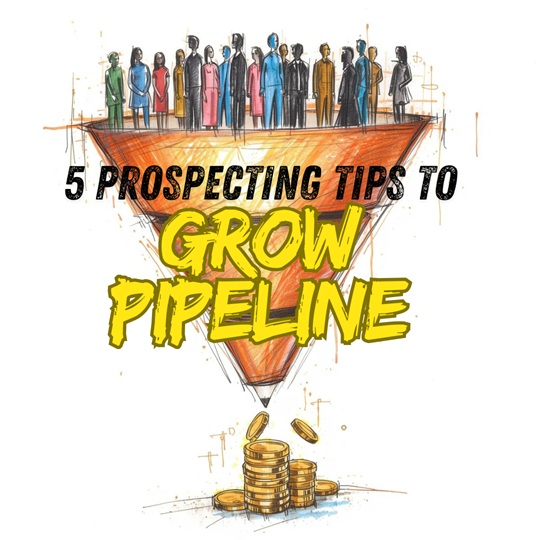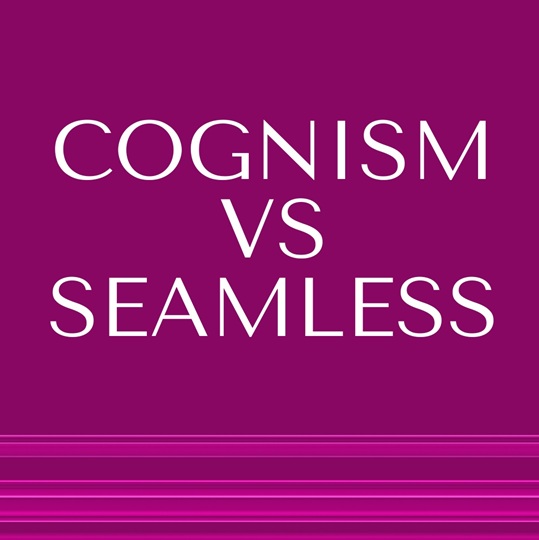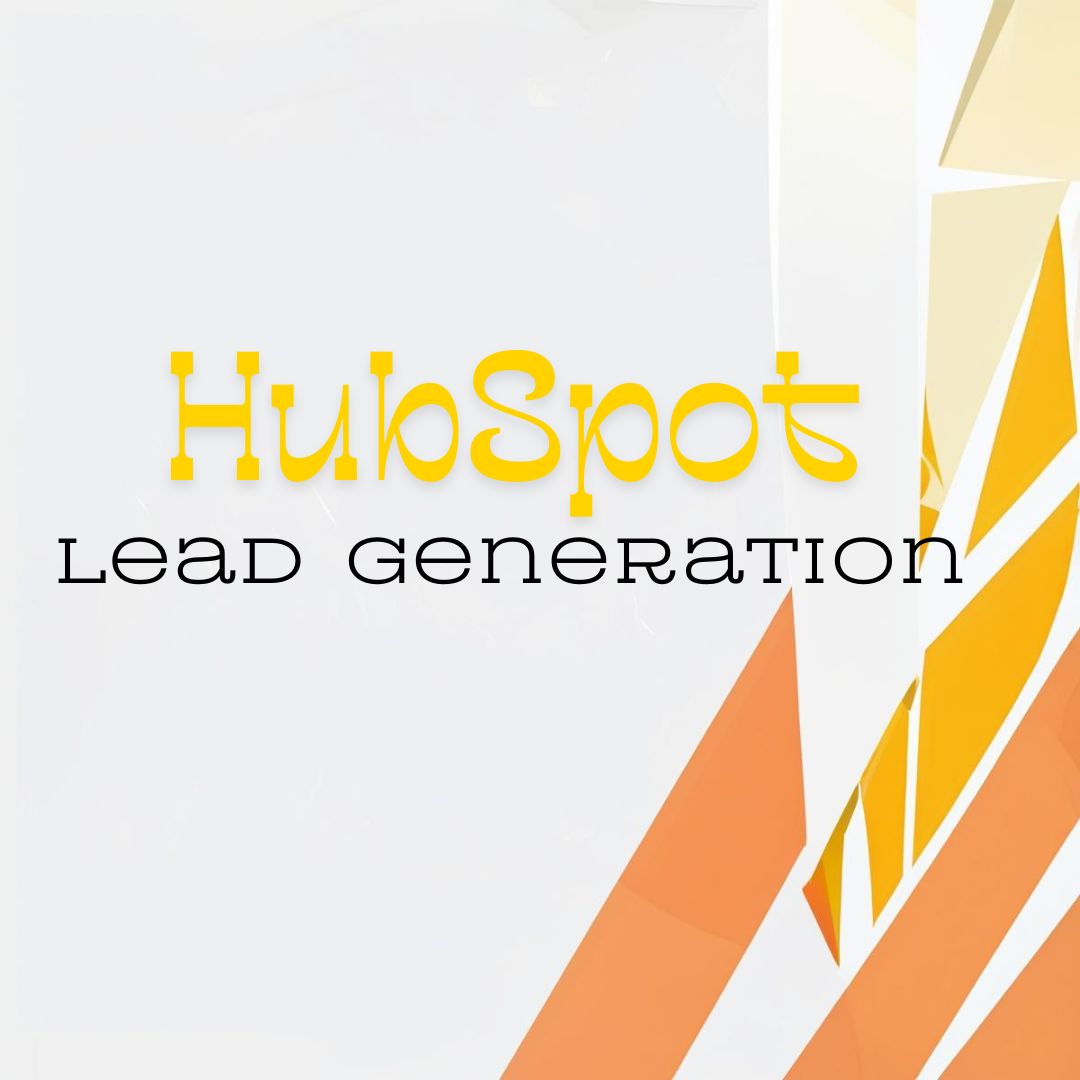Imagine if Walter White in Breaking Bad swapped his drug lab for a modern-day B2B chemical sales pipeline. What do you think his first move would be?
The high school chemistry teacher to cutthroat drug supplier and businessman pipeline of Walter White’s character arc offers a rich tapestry of lessons.to doing sales prospecting in the B2B chemical industry.
Just like the meticulous setup of his full-blown underground lab operation, prospecting chemical companies requires a winning formula for “crystal blue persuasion”.
Your “crystal blue persuasion” for chemical sales prospecting might not look like Walter White’s infamous pure blue “rocks”, but rather a blend of technical knowledge, customized solutions, a touch of ingenuity to navigate regulatory and supply chain complexities, and of course–a touch of finesse.
We're going to break down the essential techniques for prospecting in the chemical sales industry, distilled into pure, unadulterated tips that even the most junior SDR can turn into gold.
You’ll learn about:
- The most common challenges of prospecting in the chemical industry
- The different types of chemicals companies for sales prospecting
- The step-by-step formula to doing chemical sales prospecting
- Additional tips and resources
The “unstable isotopes” of chemical sales (challenges)
Let’s break down some of the more frustrating elements of selling in the chemicals industry. Think of these as the "unstable isotopes" of our field—challenging, but manageable with the right approach.
Each of these challenges to sales prospecting might sound familiar, but we’ve added a few not-so-obvious, niche challenges you should keep in mind specifically for the chemical industry.
1. Regulatory hurdles and compliance
If you think there are way too many elements in the periodic table to memorize, you might be overwhelmed by the sheer volume of regulations in the chemical industry. It’s like there’s a new one every week while the preexisting ones change on a regular basis too.
Jumping through the hoops of REACH, TSCA, OSHA, and other regulatory frameworks can be mind-numbingly complex–almost as complex as trying to make a new drug formula from scratch.
Each region has its own set of rules, and staying compliant is non-negotiable. This can slow down the sales process and require constant updates and adjustments to your strategies.
Unlike tech or consumer goods, a minor change in a chemical formulation can require an entirely new set of regulatory approvals. It’s like having to reshoot a movie because you changed one line of dialogue.
What this means for sales teams: Become an expert with chemical industry regulations and stay on top of the latest changes in compliance.
2. Supply chain disruptions
Chemicals often rely on global supply chains, which can be more unpredictable than a sudden drop in stock prices like Bitcoin’s recent $50,000 drop in price. Geopolitical tensions, natural disasters, and especially pandemics can wreak havoc on your supply chain, causing delays and price fluctuations.
Supply chain disruptions can feel a lot like scrambling to find essential components under tight deadlines. Focus on delivering supply chain solutions that will help streamline the process of getting everything together for your sales prospects.
3. Technical jargon and knowledge gap
Explaining complex chemical processes and products to prospects who may not have a deep technical background can be like trying to teach quantum mechanics to a high school freshman. This gap can lead to misunderstandings and miscommunications, making it harder to close deals.
When speaking with sales prospects in the chemical industry, you can’t always assume that someone has the same level of knowledge or expertise as you do. Learn how to speak their language and break down complex concepts into simpler terms–this is key to succeeding in this industry.
4. Safety concerns and liability
Chemicals can be hazardous, and safety is a top priority. Convincing prospects that your products are safe and that you have robust safety protocols in place can be challenging. You can’t just give them your word, you need to have proof of credibility through proper documentation.
Liability concerns can also deter potential customers, especially in industries where a single mishap can lead to catastrophic consequences.
Unlike other industries, a minor spill or improper handling of chemicals can lead to significant environmental and health risks, making clients extremely cautious.
5. Long sales cycles
Remember the painstaking days of waiting for Game of Thrones to come back on TV after a 20-month hiatus?
Sales cycles in the chemical industry can be just as long. The process of testing, approval, and procurement can take months or even years, requiring patience and persistent follow-up.
You need a lot of patience and the ability to be quick on your feet as delays happen.
6. High competition and price sensitivity
The chemical industry is highly competitive, with numerous players vying for market share. It’s like when Walter White decided to become a player in an overcrowded drug market.
Price sensitivity is also a significant issue, as even a small difference in price per kilogram can sway a customer's decision. This requires not just competitive pricing but also demonstrating superior value and quality.
It’s like a high-stakes poker game where everyone knows the rules, and you have to play your cards perfectly to win.
Niche issues unique to chemical sales
We’ve covered some of the more common challenges in chemical sales prospecting, but there are always a few outliers to keep in mind with each industry.
In the case of chemical sales, there are two “unstable isotopes”:
- Product customization and technical support
- Environmental and sustainability concerns
These two niche challenges are like the two trick questions on a complex chemistry exam that the average student always has trouble with.
When it comes to the first niche chemical sales challenge, clients often require customized chemical formulations tailored to their specific needs. This can lead to longer development times and extensive back-and-forth communication to get the formulation just right.
You need to have a deep understanding of their processes and requirements, plus a lot of patience. Providing technical support and troubleshooting can also be more intensive compared to other industries.
What’s more, you’re also faced with environmental and sustainability concerns. Clients are looking for green chemistry solutions. This means you need to stay ahead of the curve with environmentally friendly products and practices, which can be more challenging and costly to develop.
It’s like trying to make a cake without sugar. You need to find alternative ingredients that still deliver the same quality and taste.
Finding the right alternative green chemical solutions is one thing, but the lack of metrics to measure sustainable chemistry attributes is another.
According to Adelina Voutchkova-Kostal from ACS GCI,
“There has been significant work over the years to determine how we measure progress towards safer chemicals, but we have a long way to go in creating similar metrics for sustainable chemicals. Clear metrics aid communication between customers and suppliers during the production of products, but also with the public and investors, and support educational transformations providing a comprehensive narrative of the community's objectives.”
From a sales perspective, these are the types of challenges that you want to tackle head on with your solutions.
Whether you’re able to help address the challenge of finding sustainable chemicals or creating clear metrics for the progress towards more green chemistry, your bottom line should align with their objectives.
Prime targets in the chemical industry: High-demand companies
Maybe you’re an expert on the different types of chemical solutions, or maybe you’ve somehow memorized the entire table of periodic elements. This technical knowledge can take you far in the chemical industry, but the most important thing to know from a sales perspective is knowing who your target companies are.
Forget the periodic elements, it’s time to get familiar with the different types of companies in the chemical industry that are prime targets for sales prospecting. Think of these as the various compounds in your chemical sales reaction, each with its unique properties and demands.
Here are some of the most common, high-in-demand chemical companies you should know.
1. Pharmaceutical Companies
These companies look for high-quality chemicals, intermediates, and active pharmaceutical ingredients (APIs). They require a steady supply of raw materials for drug formulation and production.
Some of their key needs include:
- High purity
- Compliance with regulatory standards (GMP)
- Reliable supply chains
Example Companies: Pfizer, Merck, Johnson & Johnson
2. Agrochemical Companies
They produce fertilizers, pesticides, herbicides, and other products essential for agriculture. They need chemicals that enhance crop yield, protect against pests, and improve soil health.
Some of their key needs include:
- Effective formulations
- Environmental safety
- Regulatory compliance
Example companies: Monsanto, Syngenta, Bayer Crop Science
3. Specialty chemical manufacturers
Specialty chemical manufacturers produce chemicals used in specific applications, such as adhesives, coatings, sealants, and additives. They often require customized formulations and high-performance materials.
Some of their key needs include:
- Innovation
- Customization
- Technical support
Example companies: BASF, Dow Chemical, Evonik Industries.
4. Industrial chemical suppliers
These companies supply industrial chemicals that are used across various sectors, including manufacturing, construction, and automotive. These chemicals include solvents, acids, alkalis, and other bulk chemicals.
Some of their key needs include:
- Bulk supply
- Competitive pricing
- Safety data
Example companies: DuPont, AkzoNobel, LyondellBasell.
5. Consumer goods manufacturers
Consumer goods companies produce personal care products, cleaning agents, and household items often require chemicals for their formulations. These include surfactants, fragrances, preservatives, and colorants.
Some of their key needs include:
- High quality supplies
- Safety
- Regulatory compliance
Example companies: Procter & Gamble, Unilever, Colgate-Palmolive.
6. Oil and gas companies
These companies use chemicals for exploration, drilling, refining, and production. These include corrosion inhibitors, drilling fluids, and catalysts.
Here are some of their key needs:
- Performance under extreme conditions
- Environmental safety
- Cost efficiency
Example companies: ExxonMobil, Chevron, Shell.
📕 Related: Learn about the oil and gas industry’s prospecting challenges, types of companies, and how to find the top companies
7. Water treatment companies
Water treatment facilities require chemicals for purification, disinfection, and waste management. Common chemicals include chlorine, coagulants, and flocculants.
Some of their key focuses include:
- Effectiveness
- Safety
- Regulatory compliance
Example companies: Ecolab, Veolia, Suez.
8. Electronics and semiconductor manufacturers
Electronics companies use high-purity chemicals for manufacturing semiconductors, printed circuit boards, and other electronic components. These chemicals must meet stringent purity and quality standards.
Their key focuses include:
- Ultra-high purity
- Precision
- Innovation
Example companies: Intel, Samsung, TSMC.
9. Renewable energy companies
Renewable energy sectors, such as solar and wind, require chemicals for producing photovoltaic cells, batteries, and other components. This includes silicon wafers, electrolytes, and composite materials.
These companies are focused on:
- Innovation
- Sustainability
- Efficiency
Example companies: First Solar, Tesla, Siemens Gamesa.
10. Food and beverage companies
They use chemicals for preservation, flavor enhancement, and packaging. These chemicals must be safe for consumption and comply with food safety regulations.
Some of their key focuses include:
- Food-grade quality
- Safety
- Regulatory compliance
Example companies: Nestle, PepsiCo, Coca-Cola.
Each type of company is a different element in your periodic table of prospects—know their properties, and you’ll create the perfect reaction for success.
The chemistry of prospecting: Breaking down the basics
Your chemical sales prospecting process should be meticulously planned out carefully and with detail. It’s like laying out your plan to conduct a complex experiment based on your scientific hypothesis.
There are so many variables you need to account for and guardrails to set in place in order for your chemical sales prospecting experiment to be successful.
Want to avoid the unexpected chemical fire of a prospect gone cold? Here is the basic step-by-step process to doing prospecting the right way in chemical sales. Use this breakdown to lay the backbone of your next sales pipeline.
1. Know your elements (market segmentation)
Just like a chemist needs to understand the periodic table, a sales executive needs to know their market segments.
Identify your ideal customer profiles (ICPs) and segment your market into categories such as pharmaceuticals, agrochemicals, and industrial chemicals. Think of it as your Heisenberg principle: the more you know about your target, the better you can predict and influence their behavior.
2. Catalyze your research (leverage technology)
In chemistry, catalysts speed up reactions without being consumed. In sales, your catalyst is technology.
Tools like Seamless.AI, LinkedIn Sales Navigator, and CRM systems are your secret ingredients. They help you gather critical data on your prospects, from company size to recent news, enabling you to tailor your pitch to their specific needs.
3. Synthesize strong relationships (build rapport)
Building a good rapport with your prospects is like creating a stable chemical compound; it requires the right bonds.
Start by understanding their pain points. Are they struggling with supply chain issues or looking for innovative chemical solutions? Use empathy and industry knowledge to position yourself as a problem solver.
Always think one step ahead and provide them with help or solutions that help prospects both immediately and in the long run.
4. The reaction process (effective communication)
Once you’ve made contact, it’s all about maintaining the right reaction conditions. Use a mix of email, phone calls, and social media interactions to stay on your prospects’ radar. Remember, persistence beats resistance.
Your sales pipeline is like a distillation column—each interaction should bring you closer to that pure product: a closed deal.
5. Measure your results (analytics and feedback)
A chemist always measures the yield of their reactions, and so should you for your sales outreach. Use analytics to track your performance. Which outreach methods are most effective? What type of messaging resonates best with your prospects? Adjust your strategy based on these insights to optimize your results.
You won’t always get it right the first time, and that’s okay. Just like adjusting and tweaking a lab experiment with different variables, you can tweak the conditions until it’s just right.
6. Never forget the safety goggles (ethics and compliance)
Just as a chemist must follow safety protocols, sales professionals must adhere to ethical standards and compliance regulations.
Misleading claims or aggressive tactics can cause your deals to explode in your face. Always prioritize transparency and integrity.
Your knowledge and expertise in this area can make you an attractive person to connect with in this industry. Chemical companies want to work with people who are familiar with these hurdles and know how to make their lives easier in this area of work.
Prospecting in the chemical sales industry isn’t just about mixing random elements and hoping for a reaction. It requires a strategic approach, leveraging technology, building relationships, and constantly refining your techniques. By following these steps, you’ll be well on your way to synthesizing success in your sales pipeline.
From lab to leads: Chemistry sales in a nutshell
Selling in the chemical industry isn’t for the faint-hearted. It’s a complex, challenging, and highly regulated field that requires deep technical knowledge, patience, and strategic thinking.
But with the right approach, you can turn these challenges into opportunities. Stay adaptable, keep learning, and remember—every problem has a solution, just like every chemical reaction has its equation.
Ready to cook up some deals? Start building your list of top chemical companies to target using Seamless.AI’s AI-powered search engine tool for freshly researched B2B contact data in real-time. It’s free to make an account, and we’ll give you 50 free credits to get started.
















